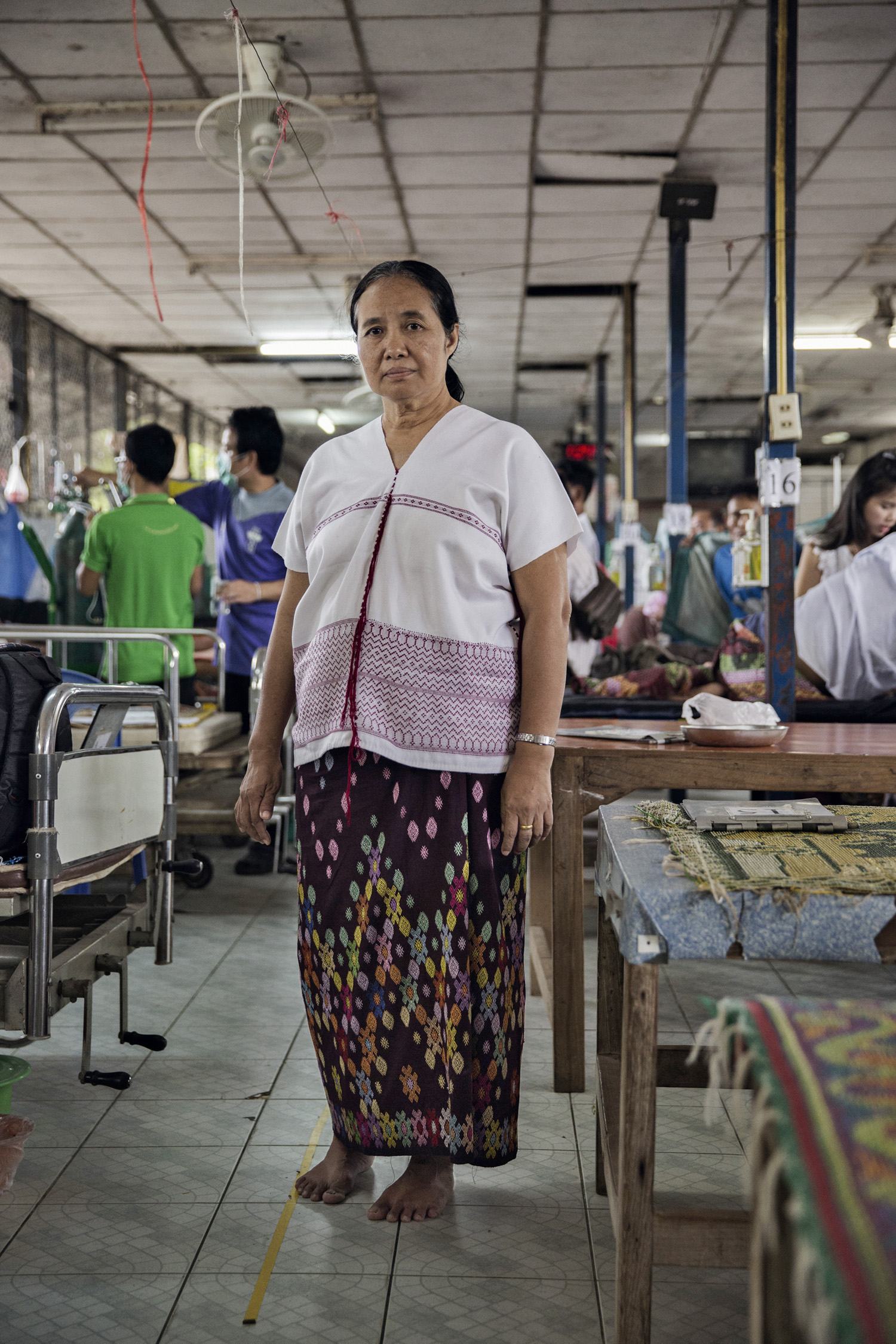
Lay Lay doesn’t yet have a name for her baby boy. The 23-year-old homemaker gave birth after a grueling eight-hour labor, having made the trip to Thailand alone from the Burmese town of Myawaddy. “I was scared to have my baby at home, as I didn’t have money for a doctor,” she says. “The doctors here made me feel safe.”
Lay Lay’s plight is a side effect of the world’s longest-running civil war, between Burma’s military and local ethnic rebel armies. The conflict has racked Burma, also known as Myanmar, for over half a century. Bloodshed and bitter poverty have claimed thousands of lives, destroyed infrastructure and forced more than 2 million refugees and migrant workers to eke out a better existence in comparatively booming neighbor Thailand.
This forsaken community has precious few options for health care, making the Mae Tao clinic, the free medical facility where Lay Lay gave birth, a lifesaver. Established by Dr. Cynthia Maung near the Thai border town of Mae Sot, Mae Tao treats more than 150,000 patients each year, including some 3,000 newborns—equivalent to a typical U.S. maternity ward.
But there are no gleaming floors or sterile hand-gel dispensers. Instead, a ramshackle collection of lichen-imbued concrete and wire huts is set amid a packed earth garden of calathea and palm. Patients lie on hard wooden or iron cots covered with mats or, if lucky, a thin mattress. Red spatters of betel juice mark the dusty courtyard.
It’s a testament to Burma’s woes that for so many of its people, Mae Tao represents the apex of medical care—and that the nation’s most famous doctor has lived in exile for a quarter-century. Dr. Cynthia, as she is affectionately known, was born in Burma’s then capital of Rangoon in 1959 but grew up just outside the sodden city of Moulmein to the south. After completing her medical studies, the ethnic Karen began working as a rural doctor and was constantly confronted by the hardships of ordinary people.
In 1988, student-led pro-democracy demonstrations convulsed the nation, only to be brutally quashed by the junta. Thousands died, and many more fled through the dense jungle to the relative safety of Thailand. Dr. Cynthia joined these bedraggled hordes, administering medical care as best she could despite the scarcity of equipment and medication. The next year, she and a few colleagues set up Mae Tao using supplies begged from missionaries and aid workers. At the outset, the clinic’s meager cache of instruments was sterilized in an aluminum rice cooker.
“We were just emergency medical relief in the conflict zone,” says Dr. Cynthia, attired in a traditional striped Karen tunic. “We were responding to the needs of new arrivals and never expected to stay on the border this long.” Over the next quarter of a century, Burma’s crisis festered and Mao Tao refashioned itself—first caring for ailing and injured students, then soldiers and refugees caught up in ethnic conflicts, and now undocumented migrant workers.
Today, Mae Tao boasts 200 clinical staff plus 300 providing training, education and support. Half the patients are Burmese working in Thailand with the remainder crossing over the border specifically to seek treatment. There are departments for immunizations, HIV/AIDS, laboratory tests, eye surgery, dentistry, respiratory disease as well as distinct local needs—such as a dedicated malaria ward and a vital prosthetics department.
Khin Maung Than’s left leg was crushed in a traffic accident six months ago. Without his cherished prosthetic, handcrafted to precisely match his stump, the 56-year-old Mandalay native would be unable to keep working as a motor-rickshaw driver. “Because of this prosthetic leg, I can still support my two children,” he says. “I couldn’t earn a living otherwise.”
But Khin Maung Than is far from typical. A glance through the department’s register reveals most patients were maimed by land mines. Mae Tao mops up after ongoing clashes between the Burmese government and myriad ethnic armed groups—wounded rebels sometimes share wards with enemy soldiers. “When they are not in the front line, they will not fight,” says Dr. Cynthia.
Since 2011 the long-closed Burma has been pried open. Media censorship has eased, political prisoners have been released and unfettered by-elections saw Nobel Peace Prize winner Aung San Suu Kyi elected to parliament. But precious little reform has trickled down to the border regions. Rape, forced labor and assaults are legion.
Reform brings other problems. Dr. Cynthia has been lionized with awards from all around the globe, but as key donors—including the U.S., Canada and Britain—become enchanted by Burma’s renaissance, crucial funds are siphoned from the impoverished frontier to projects inside the country. Clinical services at Mao Tao cost almost $2 million annually, but resources are only secure until mid-2015. “It’s very challenging if you don’t have funds,” says Dr. Cynthia. “People come here for medical care but have many needs. We have to look not at a disease but at an individual.” Individuals like Lay Lay’s son, who might not yet have a name but, thanks to Dr. Cynthia, now has a chance.
More Must-Reads from TIME
- Why Trump’s Message Worked on Latino Men
- What Trump’s Win Could Mean for Housing
- The 100 Must-Read Books of 2024
- Sleep Doctors Share the 1 Tip That’s Changed Their Lives
- Column: Let’s Bring Back Romance
- What It’s Like to Have Long COVID As a Kid
- FX’s Say Nothing Is the Must-Watch Political Thriller of 2024
- Merle Bombardieri Is Helping People Make the Baby Decision
Write to Charlie Campbell at charlie.campbell@time.com